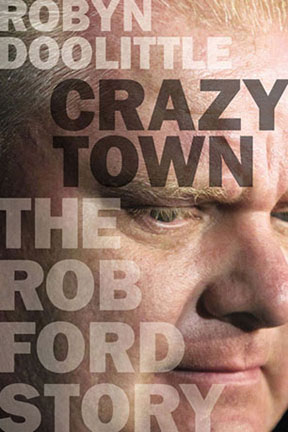WE Charity–why such fuss about what won’t happen? Try fixing the Mounties instead? No, it’s back to Crazy Town–to prove Canada’s just as bad as USA!
Jul 18th, 2020 | By Counterweights Editors | Category: In Brief
UPDATED JULY 24, 2020. (Click on “Read the rest of this page” and/or scroll down to “BACK TO CRAZY TOWN CANADA” below). CW EDITORS : The real “embarrassment” in parliamentary ethics committee calls for such things as receipts from Trudeau family WE charity speeches ultimately focuses on far too many of the 338 elected members of the Canadian House of Commons.
We are living in a time of unique political, economic, and cultural stress virtually throughout the global village. But so many of our MPs can apparently think of no more urgent public business than inside-baseball complaints about a public policy that has already been abandoned, in response to earlier vague objections about possible perceived connections with the families of the prime minister and minister of finance.
(And btw on Twitter you can also hear that, eg, both current frontrunners in the Conservative leadership race, and Saskatchewan Premier Scott Moe, have had their own interesting involvements with the WE charity organization – as no doubt have vast enough numbers of other people in our vast country.)
MP Michael Barrett, Conservative party ethics critic, claims to be worried about “who was responsible for putting WE forward for the deal” (again now abandoned). As he went on to explain, the house ethics committee needs “to pin down all of the facts as soon as possible so we can assure Canadians that Parliament is exercising its function as a check against the executive branch of government.”
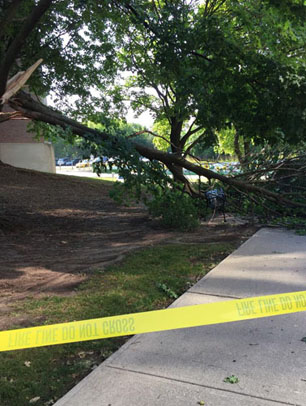
To start with, there is (hopefully) a growing highly justified cynicism about all such essentially deeply partisan political rhetoric, among we mere voters or “people of Canada.” And then Mr. Barrett also seems to suffer from the illusion that Canada has the same kind of political system (currently not working very well at all) as our big brothers, sisters, cousins, and other family and friends next door in the United States.
As noted in the preamble to what we now call the Constitution Act 1867, Canada has a “Constitution similar in Principle to that of the United Kingdom” (not the United States). And as explained at about the same time by the Walter Bagehot [1826—1877] who wrote the classic survey of The English Constitution, the kind of “Parliamentary Government” we are still supposed to have in Canada “is essentially a Government by discussion.”
As the Indian economist and political commentator Prabhat Patnaik has much more recently explained, in connection with the work of Amartya Sen, the “idea of democracy being ‘government by discussion’ really belongs to John Stuart Mill [1806—1873], though this particular phrase was coined by Walter Bagehot.”
In any case (and without going into any more fascinating historical and philosophical detail), “government by discussion” – when it is working properly – is supposed to be rather different from the “separation of powers” system in the United States (under which the concept of the legislature as a “check against the executive branch of government” is most warmly embraced : see, eg, Bagehot’s chapter eight, on “Supposed Checks and Balances” in the US and UK systems).
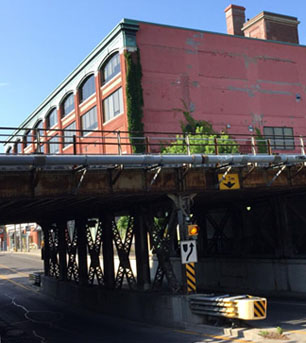
In our kind of parliamentary democracy the concept of government by discussion means that parliament itself is ultimately part of government, if not quite “the government” in the sense of prime minister and cabinet. (So one secret of our system, at least some have said, is not the separation but the cabinet-induced “fusion” of legislature and executive that gets things done – attenuated as it is in minority governments.) And democratically elected MPs at least ought to take a leading part in what Bagehot called the “constant speaking and writing” by which “a public opinion is formed which decides on all action and all policy.”
It is also true enough that the differences between the “presidential-congressional” political system in the United States and the more fluid “parliamentary democracy” in the United Kingdom are in some degree changing in our time. And for current examples of how Walter Bagehot’s old constitutional verities do not actually seem to be helping the United Kingdom itself lately, see “Superman Falls to Earth … Ferdinand Mount on Boris Johnson’s first year.”
During the Harper era in Canada we had as well Michael Chong’s at best only slightly successful stab at giving ordinary MPs more independent weight and heft in our particular Canadian parliamentary democracy. (See eg : “Michael Chong urges MPs to ‘reclaim their influence’ as Reform Act takes effect … Picking leaders, expelling MPs: each party caucus will vote at 1st meeting on what powers MPs should have.”)
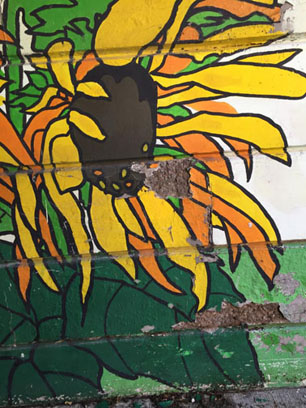
Just to quickly summarize our larger point in all this hot weather, however, the August 2020 print edition of Maclean’s magazine includes a quite apt and relevant article by Stephen Maher, with the headline, “The end of the RCMP?”
As Mr. Maher wisely notes, at this juncture in the story of planet earth “everyone ought to be able to see” that the legendary Mounties in Canada – federal police force and current provincial police force in eight out of ten provinces – “is an institution that needs to be torn apart and put together again.”
Maher also aptly enough notes : “History suggests that only politicians can force the RCMP to change, that it will not change itself.” And he suggests that “RCMP investigations into Airbus, the sponsorship scandal, Mike Duffy’s expenses and SNC-Lavalin” may explain why prime ministers and cabinets “may be reluctant to act.”
But what about opposition majorities in minority-government parliaments? Wouldn’t it be much more useful for the Canadian people if our current pandemic parliament in Ottawa bent its mind to just how the RCMP might be effectively “torn apart and put together again” for the 21st century?
As opposed to trying to count how many angels can be fit on the head of a WE charity pin, sometimes worn by some family members of the prime minister and minister of finance? (Already under a lengthy investigation by yet another federal ethics monitor anyway.)

If the hard-working likes of the Conservative party’s Michael Barrett and the NDP’s Charlie Angus were actually to bend their collective parliamentary minds to the serious problem of reforming the Mounties, for the new age of some sort that clearly enough lies ahead (and, say, before the 2023 150th birthday of what John A. Macdonald launched as the North West Mounted Police in 1873), we would start to pay serious attention.
If they’re going to keep pretending that we really have a political system just like the one currently misfiring on all cylinders next door – and that the activities of the families of Justin Trudeau and Bill Morneau and the WE Charity have anything seriously in common with what Donald Trump’s niece describes in her new tell-all book – we’re off to the beach, at the foot of the street where our global head office resides.
(With our masks on, and our social distancing antennae finely tuned, of course. And, as our mayor has advised, if there are too many people at the beach we will move on, to the Tim Horton’s on the main drag just north of the lake. RIP John Lewis.)
UPDATE JULY 24, 2020 – BACK TO CRAZY TOWN CANADA : Interim Conservative leader Andrew Scheer has now called for the resignations of the prime minister and minister of finance over the so-called “WE Charity controversy.”
So much of the right-wing-dominated mindless media have treated this and related partisan political extreme hyberbole as if it were serious democratic politics. And we in Canada have suddenly re-entered the destructive no man’s land last visited in the so-called SNC-Lavalin controversy last year.
Except this time there’s even less reason and much less excuse for our recurrent Canadian passion to show the world that, as deftly tweeted yesterday by L. Lea @YukonGale : “We’re getting as ridiculous as USA.”
As noted above : “We are living in a time of unique political, economic, and cultural stress virtually throughout the global village.” We need leaders who are ready to reach for the stars – who talk about “an important opportunity to figure out what really matters in our communities … and perhaps above all, to think about what kind of future we want to build together.” But what’s going on in our federal parliament in Ottawa?
In fact the opposition parties have a majority. If they really believe the Trudeau Liberal minority government has done something so abhorrent they should bring it down, and precipitate a fresh election in which we the people can decide for real.
And they can’t use the coronavirus as an excuse for not being able to do this just yet. They can gather in this warm summer weather at Leamy Lake Park in Gatineau – the “largest urban park in Canada’s Capital Region,” with enough space to maintain proper social distancing. There they could, if they all agree (or at least almost all Cons, BQ, and NDP MPs) vote to defeat the government at the earliest opportunity.
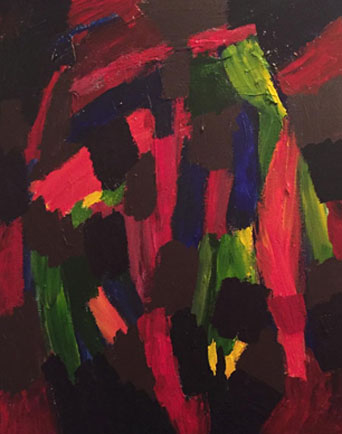
Then they could send a telegram, or even a letter with all their signatures, to the Governor General. And if the Governor General can actually dismiss the prime minister under certain circumstances, as happened in Australia in 1975, that should be enough for the Governor General in Canada to call a fresh election in 2020!
Meanwhile, we will seek solace from the likes of L. Lea @YukonGale , who also poignantly tweeted yesterday : “I’m weary of the politics this country is heading toward. I really thought we were smarter, kinder, fairer.”
And we share the sentiments of cynthia harbour@smell3roses about one branch of the mass media that we at least once had more regard for : “I am personally ashamed that a public broadcaster paid with my tax dollars has turned into a mindless shill – I have been a @CBCPolitics for a very long time, but I no longer listen or watch ANY BLOODY CANADIAN NEWS.” We’re sticking to the movie channels ourselves (or at worst the American News), as we continue to shelter in place … sometimes at the beach …
